
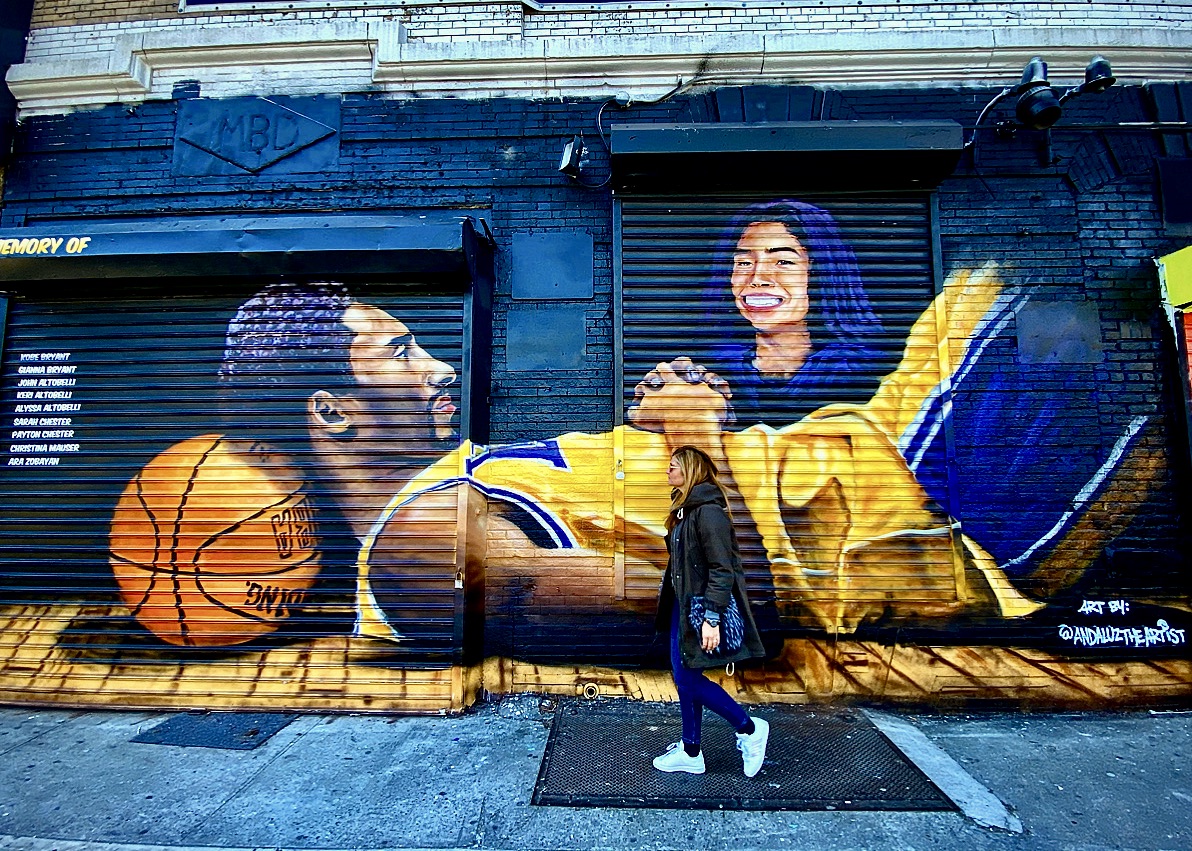
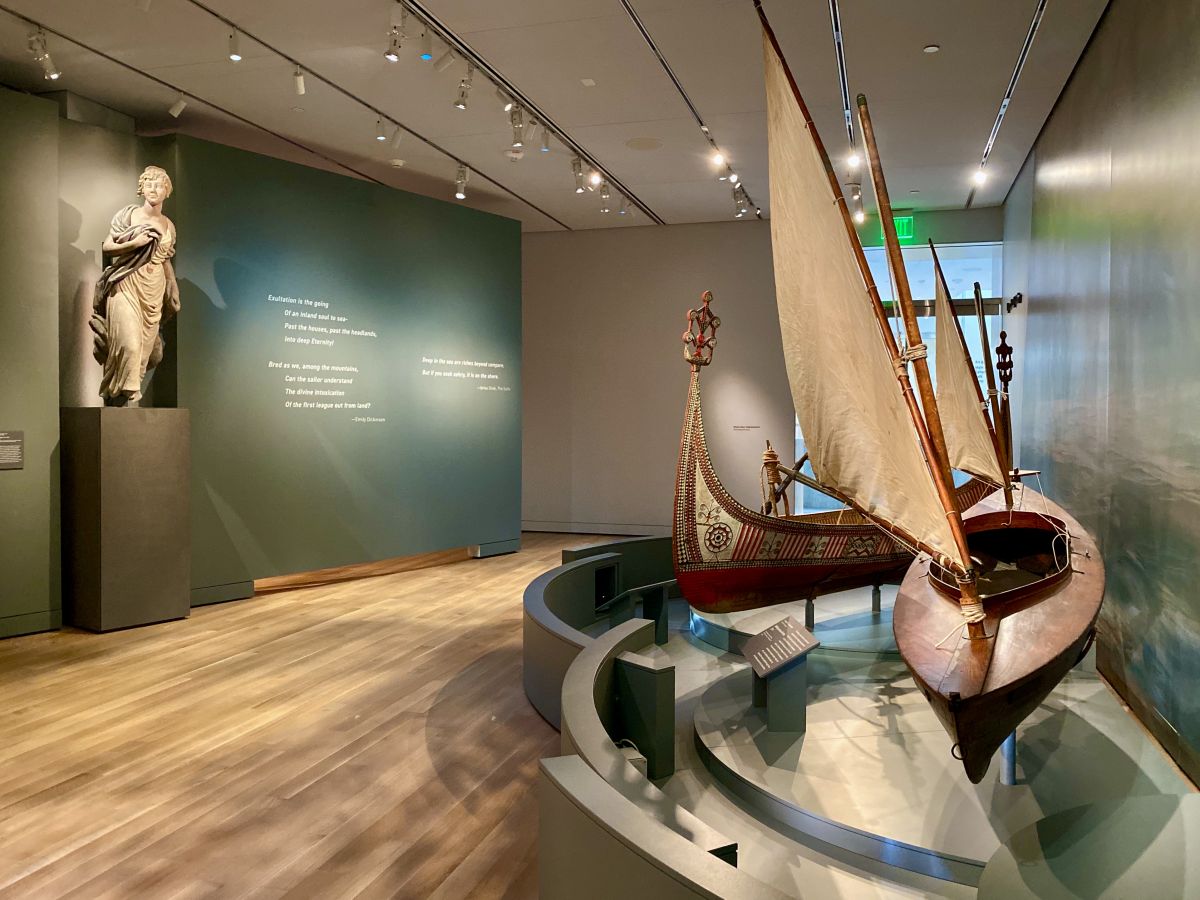
In Italian
Visit Salem, Massachusetts: a guidebook to the locations not to miss. From those ones dedicated to the history and the “myth” of “Witches” as far as the House of the 7 Gables by Nathaniel Hawthorne, passing though the Peabody Essex Museum that you can’t miss, the Derby Wharf, the historic dwellings in Chestnut Street and the murals in El Punto.
The first thing that comes to mind when we think about Salem in Massachusetts, is unavoidably that period of mass hysteria at the end of the 1600s that has gone down in history as “Witch Hunt”. It marked so much the collective imaginary in the following decades that then over time turned it into the Witch City par excellence.
The sad and tragic history of the young women accused of witchery in 1691, the summary trials, 156 people accused and 20 innocent lives executed: everything is documented in a proper trail that today is developing through the Witch Trials Memorial – a memorial commemorating the victims – the Salem Witch Museum – a museum telling the real story – and the Witch House – the house where the prosecutor Jonathan Corwing interrogated the presumed witches.
To this itinerary, a series of theme stores along the Essex and Charter Street are added: here gadgets, hats and witch costumes, and the ingredients for improbable magic potions can be bought.
The piece of cake is the unmissable photo next to the Bewitched Sculpture, the statue of Samantha, the witch of the TV series “Bewitched”, at the crossroads between Essex and Washington Street.
If you are going to visit Salem at Halloween – besides make a reservation for your accommodations well in advance, since the city is always stormed by visitors from all over the world – I recommend to look up the official Haunted Happenings in Salem website in order to always stay up to date about the events, the shows and the festivals dedicated. And about the ghost tours scheduled all over October, of course.

Visit Salem, Massachusetts: a guidebook of the locations not to miss to discover the “Witch City” at Halloween
The 1993 Disney’s movie Hocus Pocus, made famous by the three “witches” Bette Midler, Sarah Jessica Parker and Kathy Nijimy, was shot right in Salem for a good part.
Among the most popular and photographed movie locations, there’s Max and Dani’s home at 4, Ocean Avenue; The Ropes Mansion (Allison’s house) at 318, Essex Street; and the Old Town Hall at 32, Derby Square.
The Salem Pioneer Village was used for the initial shootings in the pilgrims’ village dating back to 1693.
Salem gathers in itself the most authentic maritime spirit of New England with all its complicate and fascinating history.
An era 200 years long – from the commercial trades towards the East, Africa and Polynesia until the foundation of the East India Marine Society – today it is possible to go over it entirely at the very beautiful PEM, The Peabody Essex Museum.
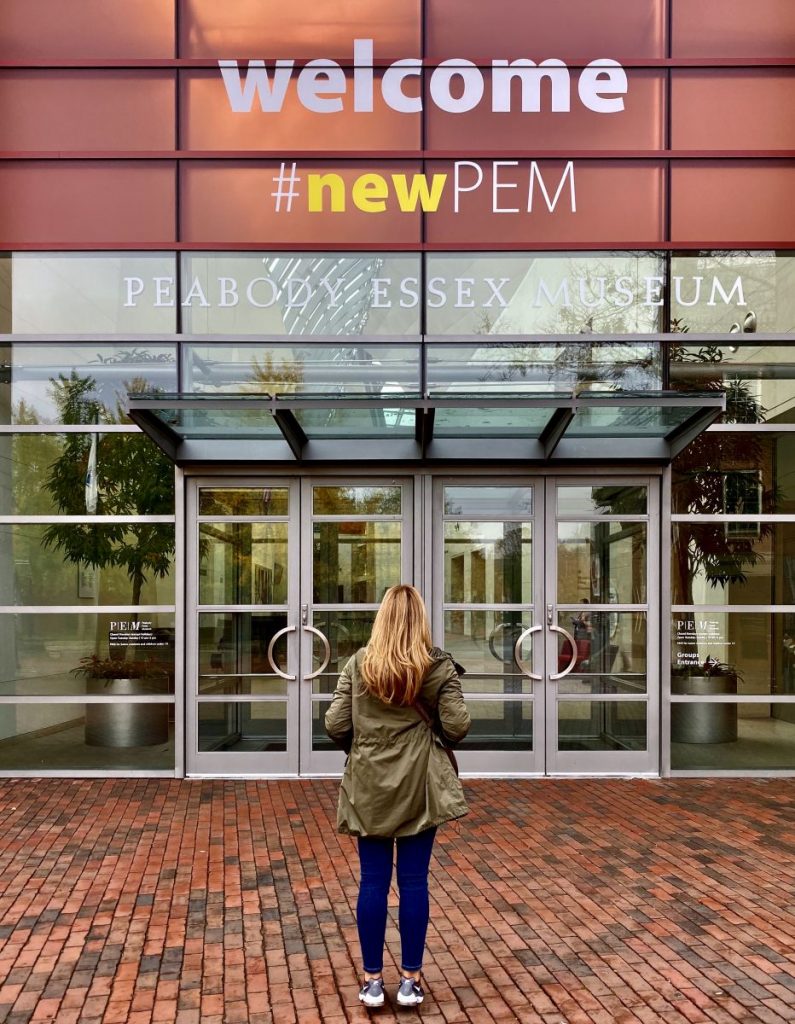
Visit Salem, Massachusetts: relive the stories of the explorers and admire the Oriental Treasures at the Peabody Essex Museum
The tour of The Peabody Essex Museum – one among the most ancient museums in The United States of America, working non-stop since 1799 – will allow you to find out the stories and the incredible treasures that traders, captains of vessels and explorers took back home from the East India and from Africa – leaving right from Salem between the end of the1700s and a good part of the 1800s, after have doubled more times both Cape Horn and Cape of Good Hope.
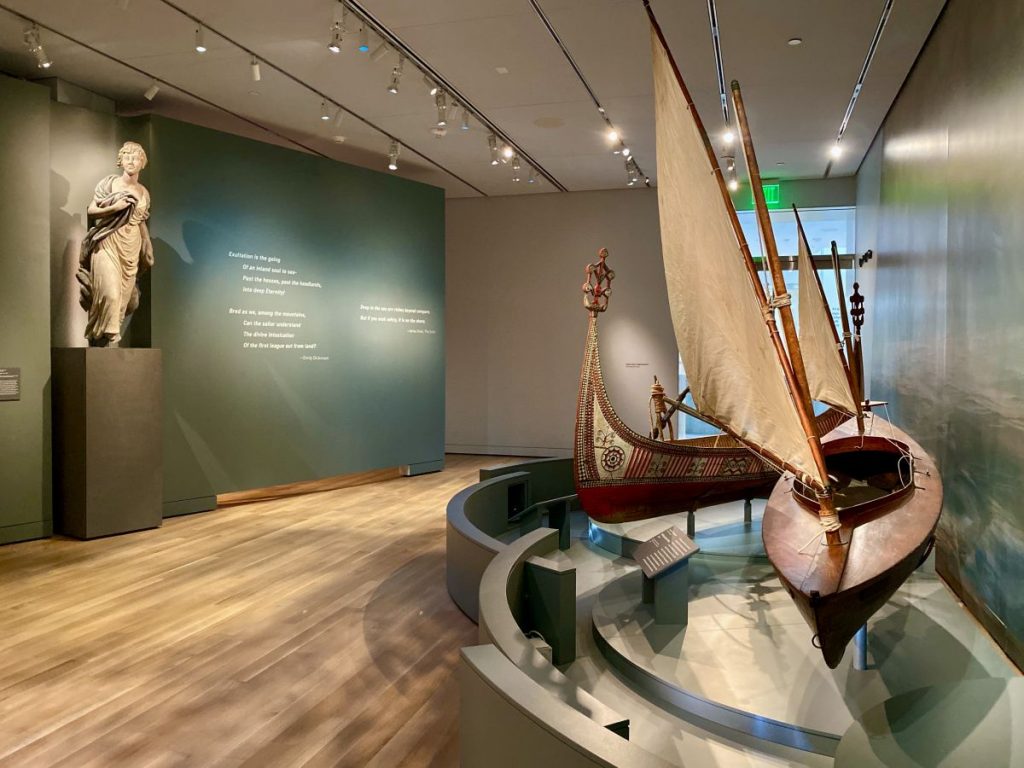
Visit Salem, Massachusetts: relive the stories of the explorers and admire the Oriental Treasures at the Peabody Essex Museum
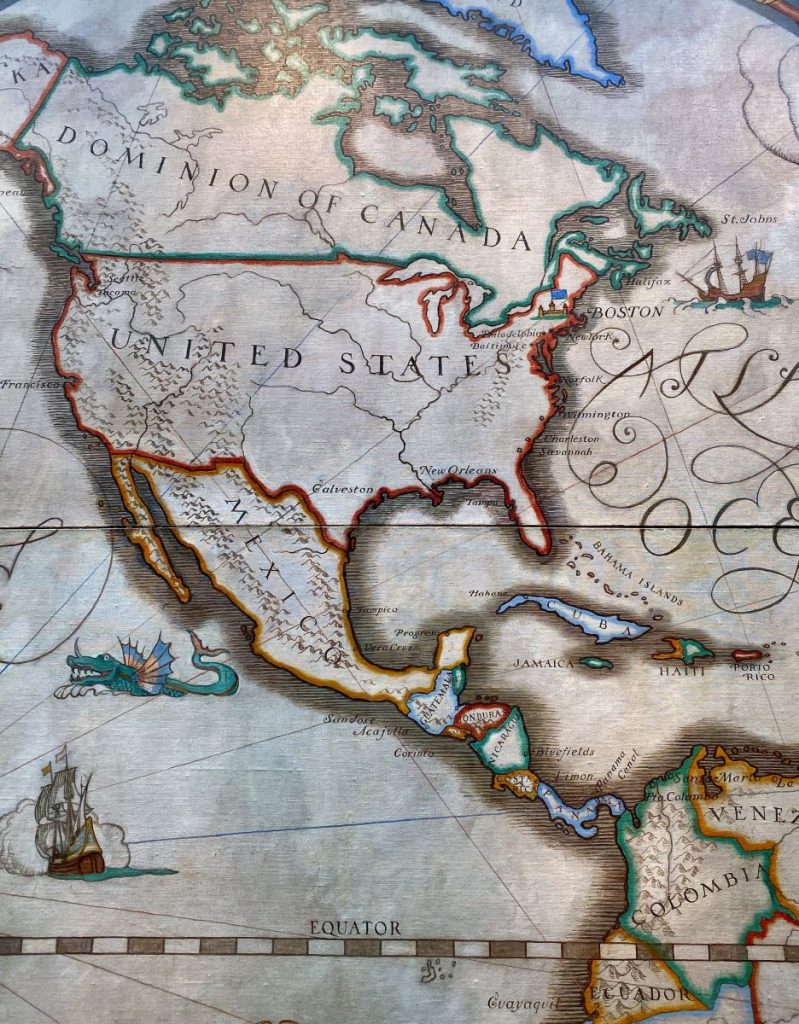
Visit Salem, Massachusetts: relive the stories of the explorers and admire the Oriental Treasures at the Peabody Essex Museum
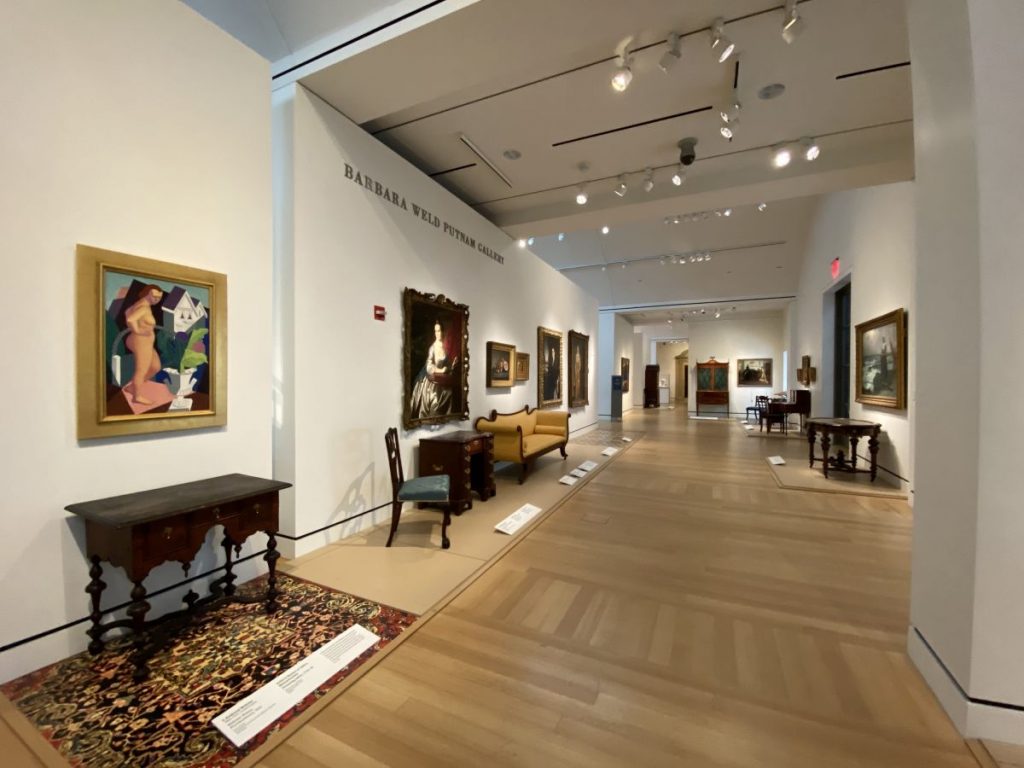
Visit Salem, Massachusetts: relive the stories of the explorers and admire the Oriental Treasures at the Peabody Essex Museum
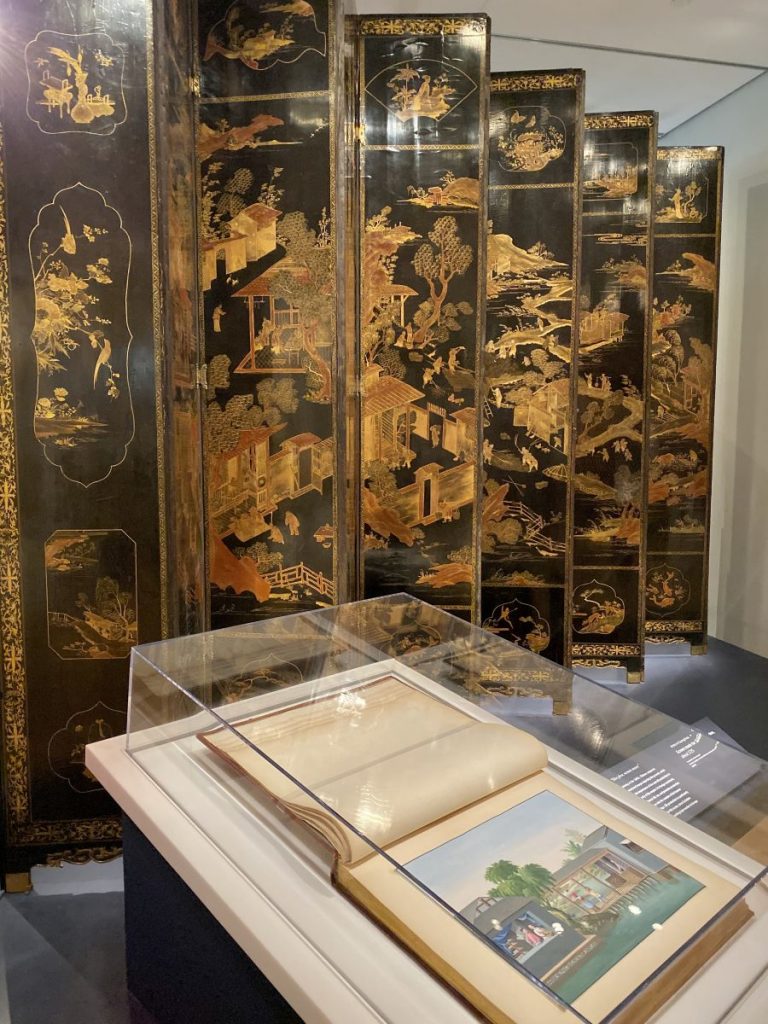
Visit Salem, Massachusetts: relive the stories of the explorers and admire the Oriental Treasures at the Peabody Essex Museum
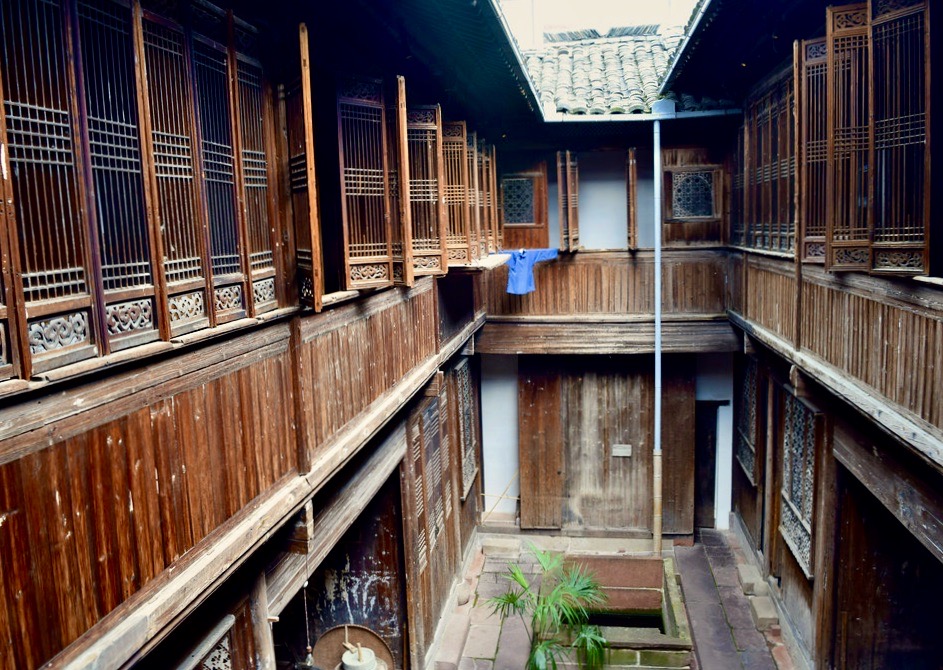
Visit Salem, Massachusetts: relive the stories of the explorers and admire the Oriental Treasures at the Peabody Essex Museum, Yin Yu Tang
Today the Peabody Essex Museum – born in 1799 with the aim of preserving and keeping the “natural and artificial curiosities” collected during the long voyages to the East – is considered one of the most precious museums of Asian Art in the USA, with downright masterpieces coming from China, Japan, Polynesia, Melanesia and Africa.
The Japanese collection – including the fascinating Yin Yu Tang, the only one house of the Qing era dismantled, taken away from the motherland and entirely rebuilt inside the PEM – is worthy among the most variegated and richest ones in the United States of America.
A treasure supplied by maps, navigation instruments and cartographies of that period and enriched even more by the wonderful frame of the ancient East India Marine Hall.
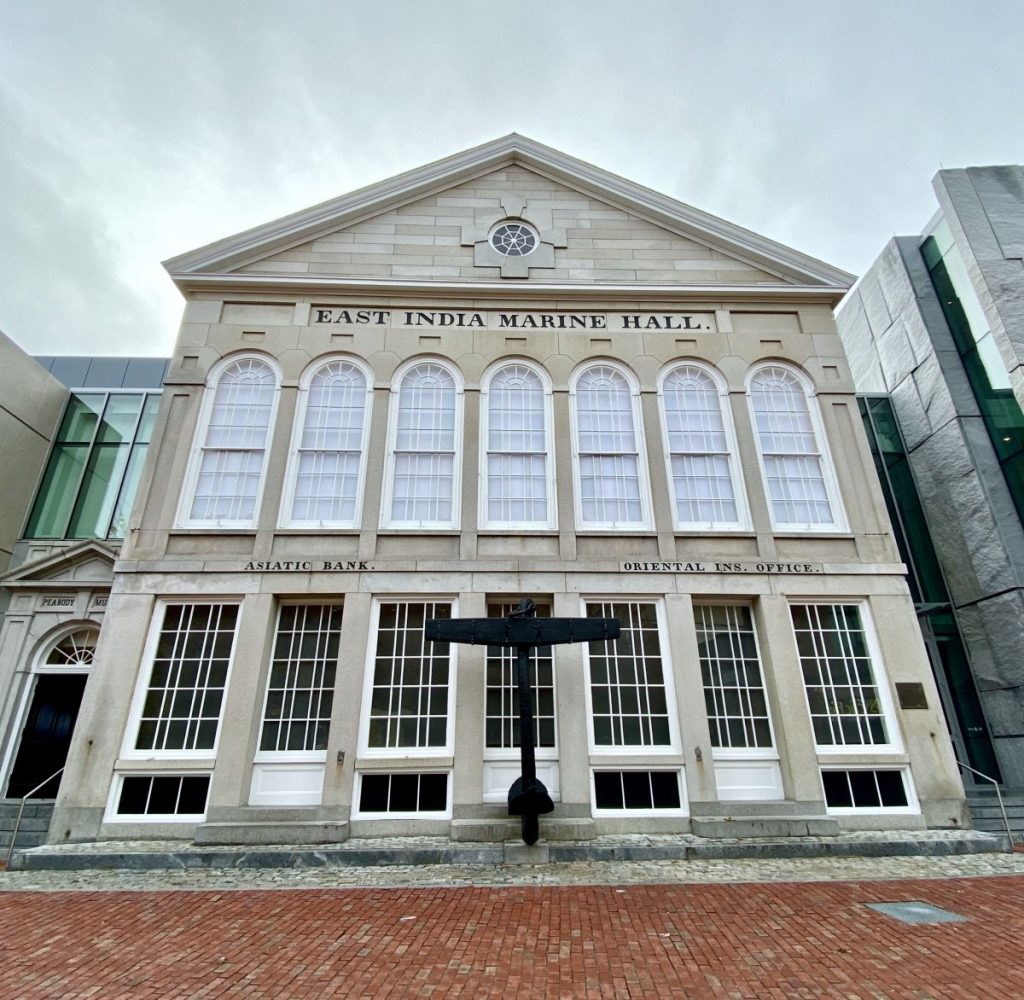
Visit Salem, Massachusetts: relive the stories of the explorers and admire the Oriental Treasures at the Peabody Essex Museum
The House of the 7 Gables is a novel by Nathaniel Hawthorne – one among the greatest authors of the literary movement called “American Renaissance” – published in 1851.
Starting right from the famous Salem Witch Trials occurred in mid-1600, Hawthorne tells – through captivating dialogues, thoughts and abundance of details – a family saga 200 years long. A complicated and intricate history – creepy in traits – involving all the descendants of the Pyncheon family, “blameless” heirs of a curse started by their ancestor, Colonel Pyncheon.
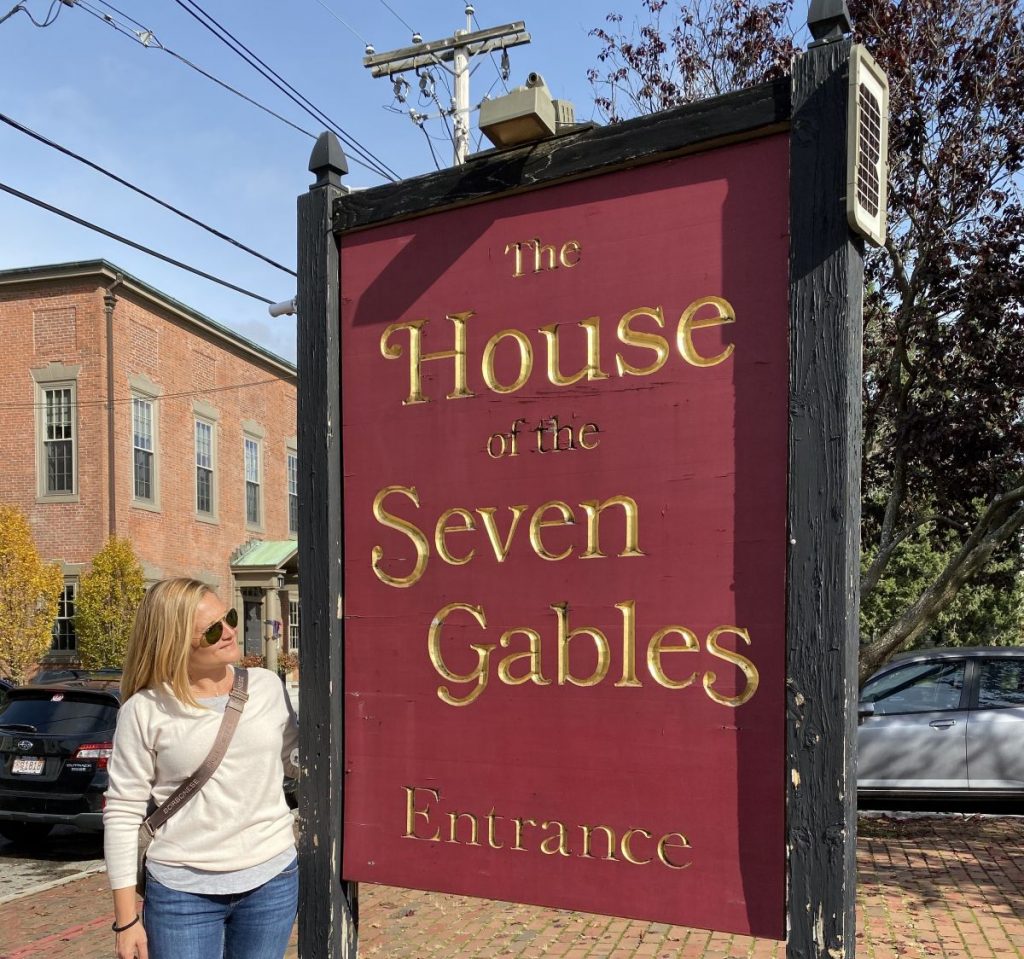
Visit Salem, Massachusetts: discover the real House of the Seven Gables, from the ancient mansion in Derby Street as far as the novel by Nathaniel Hawthorne
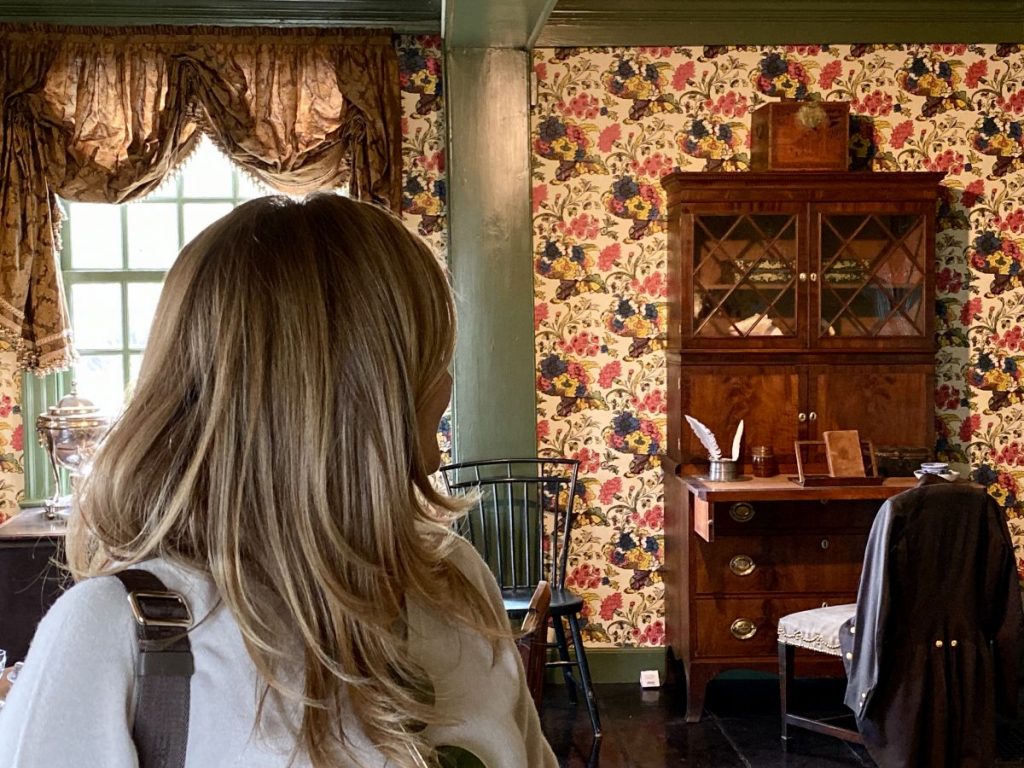
What to see in Salem, Massachusetts: visit The House of the 7 Gables, the original desk where Hawthorne wrote “The House of the 7 Gables” and “The Scarlet Letter”
The New England village where the entire story takes place is actually Salem, the town where Hawthorne was born and where he lived a good part of his life. And the Pyncheon House is actually The House of the 7 Gables – known as The Turner-Ingersoll Mansion, the house Hawthorne visited often when he was a teenager and which fascinated him. He was stimulated also by the stories told by his cousin Susanna Ingersoll about the real and creepy as well history of the mansion, built in 1667 by the sea Captain John Turner (tragically dead some time later) and successively inhabited by Susanna’s family.
A perfect setting which literally gave “life, soul and voice” to one among the greatest novels of the American Literature.
Find here a detailed article about the story and the tour of the House of the 7 Gables and the adjoining Derby Wharf, the old port of the town that today is a part of the Salem Maritime National Historic Site.
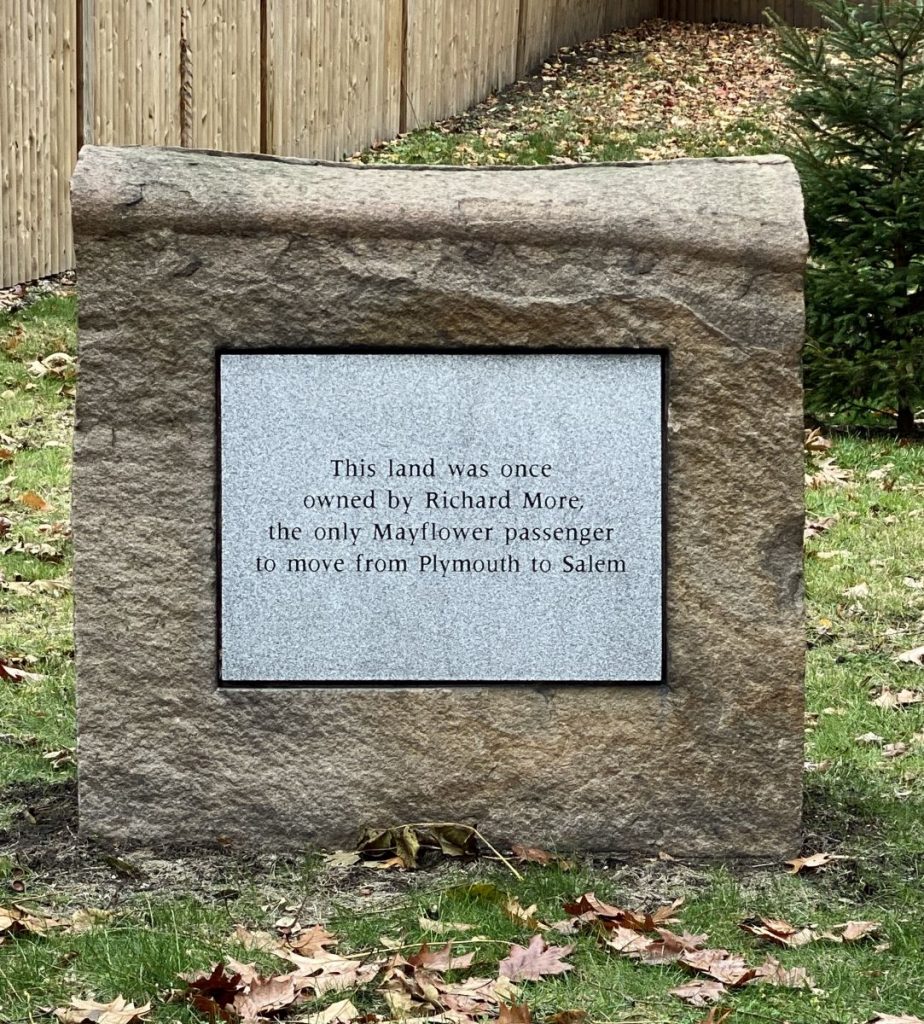
Visit Salem, Massachusetts: discover the real House of the Seven Gables, from the ancient mansion in Derby Street as far as the novel by Nathaniel Hawthorne
Once gone out from the House of the 7 Gables don’t miss the chance to enter the near store of the America’s Oldest Candy Co. in Derby Street to taste the famous Salem Gibraltar Candies (flavored lemon and mint) and the Black Jack Candies (flavored molasses). You can buy them at the original store where Mrs. Spencer created them in 1806 with a sugar barrel bought with a loan of some good friends after have sunk with her family – aboard a vessel coming from England – on the coasts of Massachusetts and have been established successively in Salem.
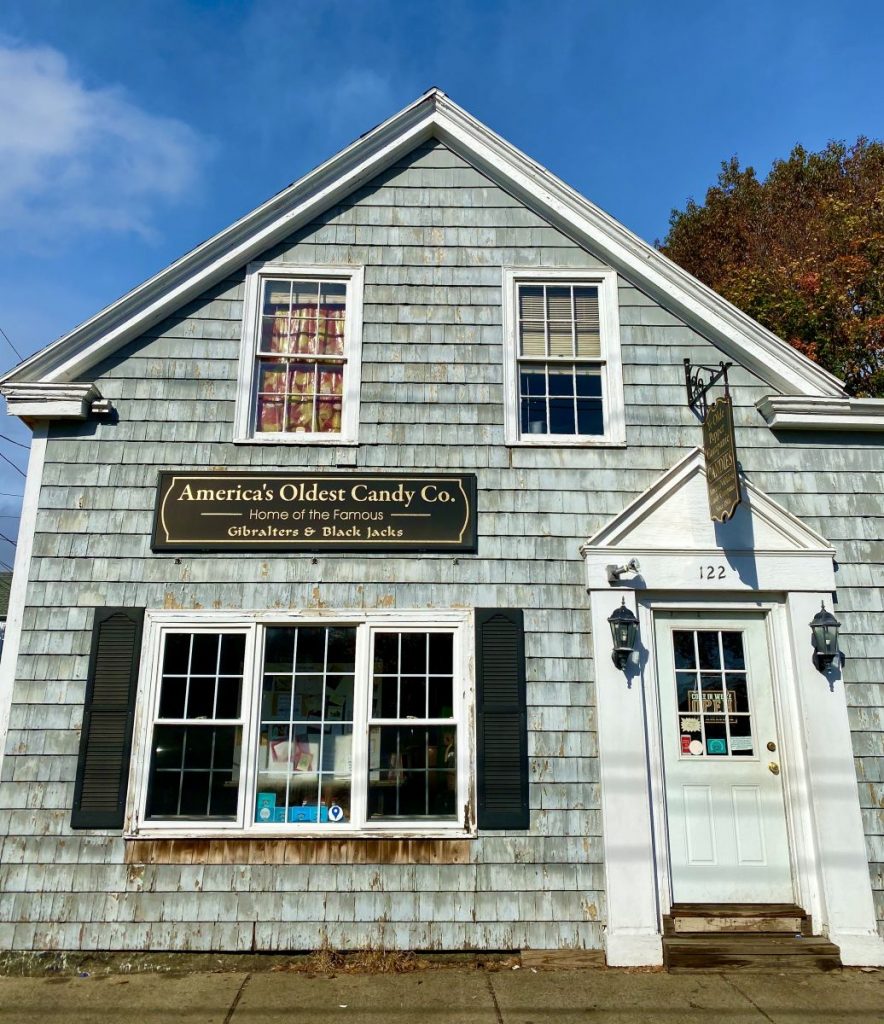
Visit Salem, Massachusetts: taste the Salem Gibraltar Candies bought at the historic store in Derby Street
The Salem Gibraltar Candy in short time became the sailors and traders’ favorite one: in fact, thanks to this special candy storing for long time, the latter were able finally to satisfy they desire of “sweet” during the long oceanic voyages.
A candy become so famous that it allowed Mrs. Spencer to retire and sell the recipe and her activity to John William Pepper in 1830, the man who created the Ye Olde Pepper Candy Company, the first real confectionery industry in the United States of America.
To date, both types of candies – together with other really delicious candies – are still produced and sold in the same store.
My tip is to taste both of them, but not before have listened to the whole story by the kind old lady dealing with the retailing.
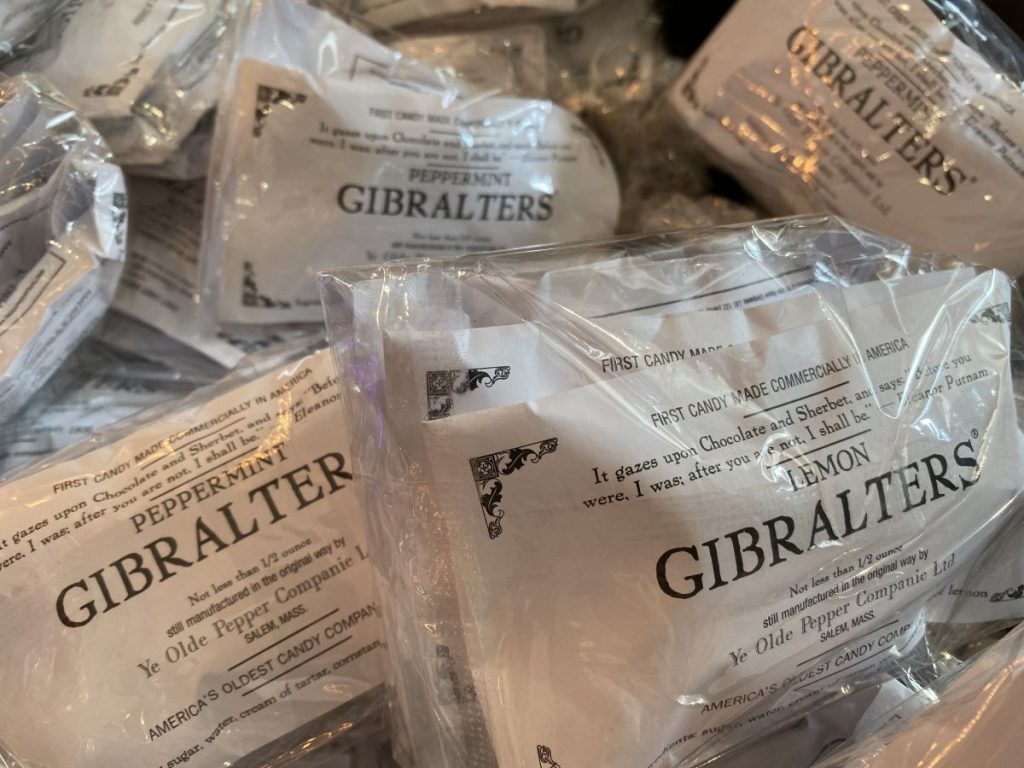
Visit Salem, Massachusetts: taste the Salem Gibraltar Candies bought at the historic store in Derby Street
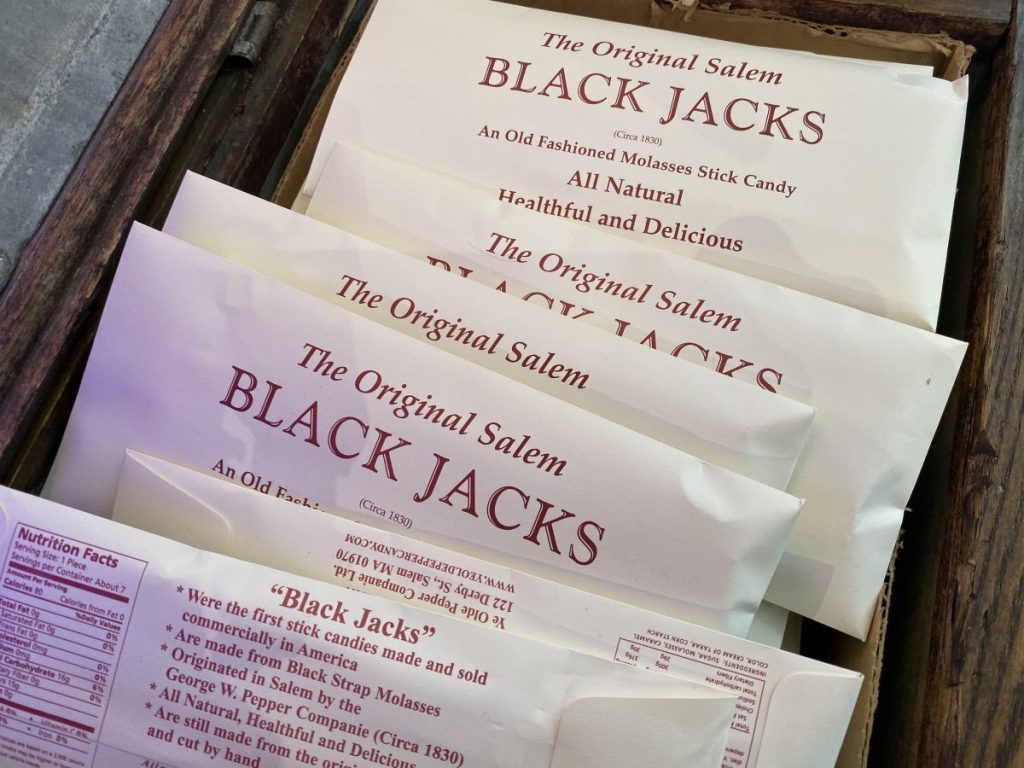
Visit Salem, Massachusetts: taste the Salem Gibraltar Candies bought at the historic store in Derby Street
The Chestnut Street District is a historic district developing geographically among Bridge, Lynn, Beckford and River Streets.
It is one of the most ancient and fascinating districts in Salem, rightly listed in the National Register of Historic Places of Massachusetts for a series of Federal style ancient dwellings planned by the architect Samuel McIntir for rich navy Captains and traders trading goods with East India.
You can simply have a walk along the streets indicated to enjoy the houses – many of them are still inhabited by the heirs of the first owners – and views.
Or you can opt for visit one of them – The Stephen Phillis Memorial Trust House at 34, Chestnut Street, with original furniture and an amazing collection of carriages and vintage cars – and find yourselves in the Salem of the 1800s as if by magic.

Visit Salem, Massachusetts: have a walk among the ancient dwellings in the Chestnut Street District, the Stephen Phillis Memorial Trust House
Before leaving Salem, give yourselves at least an hour to have a walk among the Murals in El Punto or The Point, a secondary zone to the southeast of the historic district.
You will find yourselves in a proper open-air museum developed on several blocks, specifically from Harbor Street as far as Ward Street and Peabody Street, from the point where they intersect Lafayette Street as far as South River.
A project born in 1978 and developed then over time as Punto Urban Art Museum, strongly wanted by the people of the district to reevaluate a secondary zone of the town – not as much known as Downtown Salem and the North Shore – and to give more business opportunities to the local companies and activities. The aim is to “make visible the invisible, so that the children of the Point district can grow up proudly and the rest of the town has a reason to visit and discover the welcoming community we know and love.”
Today the area hosts over 75 murals created by famous street artists coming from all over the world and also a discreet number of local artists.
Getting access to the Punto Urban Art Museum official website, you’ll have the chance to plan your tour at its best, mapping the locations of the murals you want to see. There is also the possibility to meet the street artists working and take part into theme events and walking tours scheduled during your visit.
For any further info about what to do in Salem and its neighborhoods, you can look up the official website of the Destination Salem local tourism.